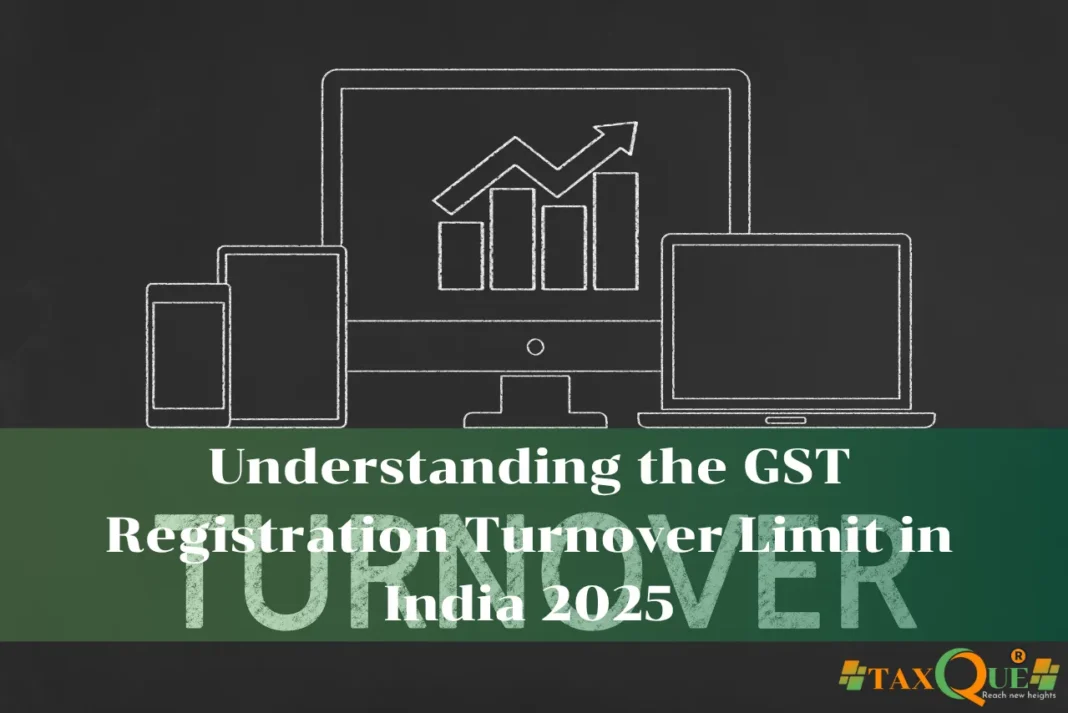GST Registration Turnover Limit in India
One of the most common questions for any new or growing business in India is: “When do I need to register for GST?” The answer lies in your annual turnover. The government has set specific thresholds, and crossing them makes GST registration mandatory. Understanding the correct GST registration turnover limit in India is crucial for staying compliant and avoiding penalties. This guide provides a clear, updated overview of the limits as of July 2025.
GST Turnover Limits: The Core Thresholds
The Goods and Services Tax (GST) law specifies different turnover limits for businesses that supply goods versus those that supply services. Furthermore, the limits vary depending on the state or union territory where your business is located. The states are broadly divided into “Normal States” and “Special Category States.”
Here are the GST registration turnover limits as of July 2025:
| Category | Normal States | Special Category States |
|---|---|---|
| Supplier of Goods | ₹40 lakh | ₹20 lakh |
| Supplier of Services | ₹20 lakh | ₹10 lakh |
It’s important to note that if your business supplies both goods and services, the lower threshold of ₹20 lakh (for normal states) generally applies.
Normal vs. Special Category States
The lower thresholds for Special Category States are in place to account for their unique economic and geographical characteristics. These states primarily include:
- Arunachal Pradesh
- Manipur
- Meghalaya
- Mizoram
- Nagaland
- Puducherry
- Sikkim
- Telangana
- Tripura
- Uttarakhand
If your principal place of business is in one of these states, you must register for GST once you cross the lower turnover limits mentioned above.
What is “Aggregate Turnover”?
The GST registration turnover limit in India is calculated based on your “aggregate turnover.” This isn’t just your taxable sales. It is a much broader calculation that includes the total value of:
- All taxable supplies
- Exempt supplies
- Exports of goods or services
- Inter-state supplies
This total is calculated on an all-India basis for a single PAN. This means you must add up the turnover from all your business branches across the country to determine if you have crossed the threshold.
When is GST Registration Mandatory, Regardless of Turnover?
While the turnover limit is the primary trigger, there are specific situations where a business must register for GST irrespective of its annual turnover. Mandatory registration is required if you are:
- Engaged in Inter-State Supply: Selling goods or services from one state to another.
- An E-commerce Seller: Selling goods through online platforms like Amazon, Flipkart, or any other e-commerce aggregator.
- A Casual Taxable Person: A person who occasionally undertakes transactions in a state where they do not have a fixed place of business.
- Required to pay tax under the Reverse Charge Mechanism (RCM).
Voluntary GST Registration
Even if your turnover is below the prescribed limit, you can choose to register for GST voluntarily. Businesses often do this to:
- Claim Input Tax Credit (ITC): Collect GST from customers and claim credit on the GST paid on their own purchases and inputs.
- Enhance Business Credibility: A GSTIN makes a business appear more legitimate and organized, which can help in securing contracts with larger companies.
- Conduct Inter-State Trade: As mentioned, inter-state supply requires mandatory registration.
Frequently Asked Questions (FAQs)
1. What is the GST registration limit for a business that provides both goods and services?
If a business supplies both goods and services, the turnover limit applicable for services will generally apply. For normal states, this would be ₹20 lakh.
2. I sell products on Amazon. What is the GST turnover limit for me?
There is no turnover limit for e-commerce sellers. If you sell goods through an e-commerce platform like Amazon or Flipkart, you must register for GST from day one, regardless of your turnover.
3. Is the ₹40 lakh turnover limit applicable in all states?
No. The ₹40 lakh limit for the supply of goods is applicable only in “normal category” states. In “special category” states like those in the North-East, the limit for goods is ₹20 lakh.
4. How is “aggregate turnover” calculated? Does it include sales that are exempt from GST?
Yes, aggregate turnover is the total value of all your supplies under the same PAN, including taxable sales, exempt sales, and exports.
5. Can I register for GST even if my turnover is below the limit?
Yes, you can opt for voluntary GST registration. This allows you to claim Input Tax Credit (ITC) and can make your business more attractive to other GST-registered businesses.
Conclusion
Staying on top of the GST registration turnover limit in India is a fundamental aspect of financial compliance. For suppliers of goods in most states, the threshold is ₹40 lakh, while for services, it is ₹20 lakh, with lower limits for special category states. However, the rules around mandatory registration for e-commerce and inter-state sellers mean that many businesses need to register much sooner. By understanding these rules, you can ensure your business operates legally and efficiently within the GST framework.
For businesses navigating the complexities of GST registration, whether mandatory or voluntary, platforms like TaxQue can provide expert guidance to ensure a smooth and compliant process.





